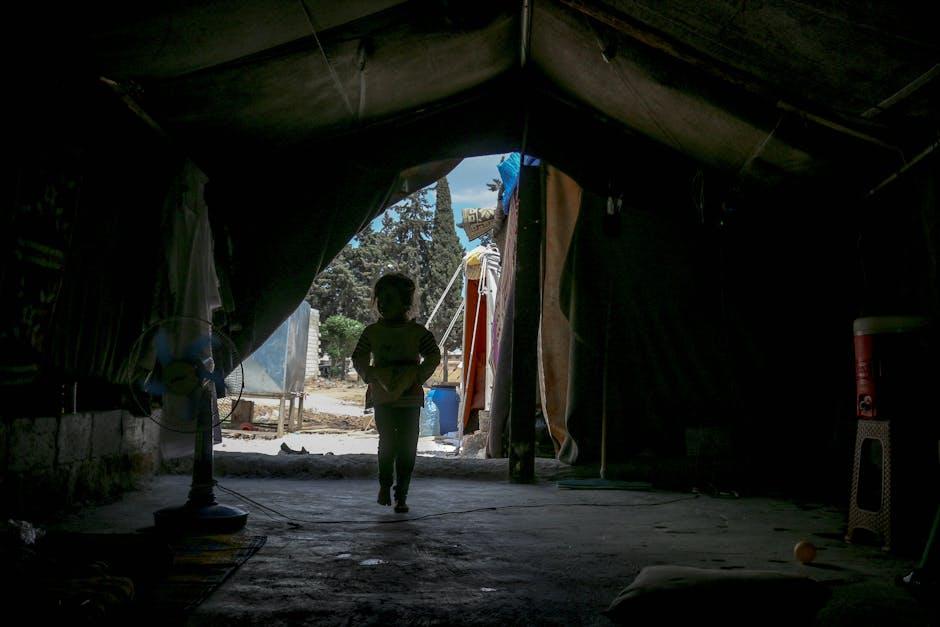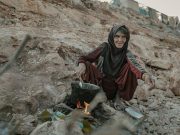In the tapestry of childhood memories, family trips often stand out as vibrant threads, weaving together tales of adventure, discovery, and bonding. Yet, amidst the joy of exploration and the thrill of new experiences, there lies an opportunity for deeper understanding and empathy—an opportunity to expose young minds to the realities of the world, including the often-overlooked landscape of poverty. “” delves into the nuanced journey of introducing children to socioeconomic diversity during travel. This article explores how families can thoughtfully approach these encounters, fostering awareness and compassion in their children while balancing the delicate act of preserving innocence and promoting social consciousness. Through stories, expert insights, and practical tips, we embark on a journey that transforms family vacations into powerful lessons of humanity and shared responsibility.
Understanding the Impact of Poverty on Young Minds
Exploring the intricate layers of poverty through the eyes of a child can be both enlightening and challenging. When children encounter poverty, especially during family trips, it opens up a unique learning opportunity that can profoundly shape their worldview. The experience of seeing diverse living conditions and understanding the struggles of others can foster empathy and awareness in young minds. This exposure can be a catalyst for developing a sense of gratitude and responsibility, encouraging children to think critically about societal structures and their roles within them.
When planning these trips, consider the following to help guide children through their experiences:
- Prepare them with context: Share age-appropriate information about the socio-economic realities they might witness.
- Encourage open dialogue: Allow space for questions and discussions, promoting a safe environment for children to express their thoughts and feelings.
- Incorporate positive action: Engage in activities that allow children to contribute positively, such as volunteering or participating in community service.
By thoughtfully navigating these experiences, parents can transform travel into a meaningful journey of growth and understanding for their children.
Fostering Empathy Through Real-Life Experiences
Immersing children in diverse environments can be an enlightening experience, fostering a profound understanding of the world around them. Family trips that thoughtfully introduce kids to poverty exposure provide a unique opportunity for developing empathy. It’s not about creating discomfort but rather sparking meaningful conversations. Engagement is key. Encourage children to ask questions and express their feelings. This can be facilitated by visiting community centers or engaging with local organizations that provide insights into the lives of people from different socio-economic backgrounds.
- Volunteering: Participate in community service projects, such as food banks or shelters, where children can see the impact of helping others firsthand.
- Local Interactions: Spend time in local markets or neighborhoods, encouraging kids to interact with residents and learn about their daily lives.
- Storytelling: Share stories of resilience and hope from people who have experienced poverty, helping children understand the broader human experience.
By carefully crafting these experiences, parents can help children cultivate a more compassionate worldview, empowering them to become empathetic and informed individuals.

Planning Meaningful Family Trips with Educational Value
Embarking on family trips that expose children to diverse socioeconomic backgrounds can be a profound educational experience. By thoughtfully planning such journeys, parents can open their children’s eyes to the realities of poverty while nurturing empathy and understanding. Here are some ways to integrate educational value into your family travels:
- Volunteer Opportunities: Engage in community service activities as a family. Participating in local food banks, shelters, or environmental clean-ups not only teaches children about giving back but also provides them with a firsthand look at community challenges.
- Interactive Learning: Visit museums or cultural centers that focus on social issues. Many institutions offer interactive exhibits and workshops designed to educate young minds about economic disparities and historical contexts.
- Storytelling and Discussions: Encourage children to document their experiences through journaling or photography. After the trip, initiate discussions that allow them to reflect on what they observed and learned, fostering critical thinking and empathy.
By incorporating these elements into your travels, you can create meaningful experiences that extend beyond typical sightseeing, ultimately instilling a deeper awareness and compassion in your children.

Practical Tips for Discussing Poverty with Children
When children encounter poverty firsthand during family trips, it opens a gateway to conversations that can be both enlightening and challenging. To foster understanding and empathy, start by explaining the concept in simple terms, making sure to tailor the discussion to their age and comprehension level. Highlight the importance of kindness and the role of community support in alleviating hardships. Encourage questions and be prepared for their curiosity to lead the conversation in unexpected directions.
- Use Real-life Examples: Share stories of individuals or families you may have encountered, emphasizing resilience and the efforts being made to overcome challenges.
- Encourage Empathy: Ask your children how they would feel in similar situations and discuss ways they can help, even in small ways.
- Be Honest: While it’s crucial to be sensitive, avoid sugarcoating the realities of poverty. Children appreciate honesty and can handle more than we often give them credit for.
- Highlight Solutions: Discuss organizations or initiatives that work towards alleviating poverty and explore ways your family can contribute.
By approaching the topic thoughtfully, you not only educate your children but also empower them to become compassionate and proactive members of society.






























